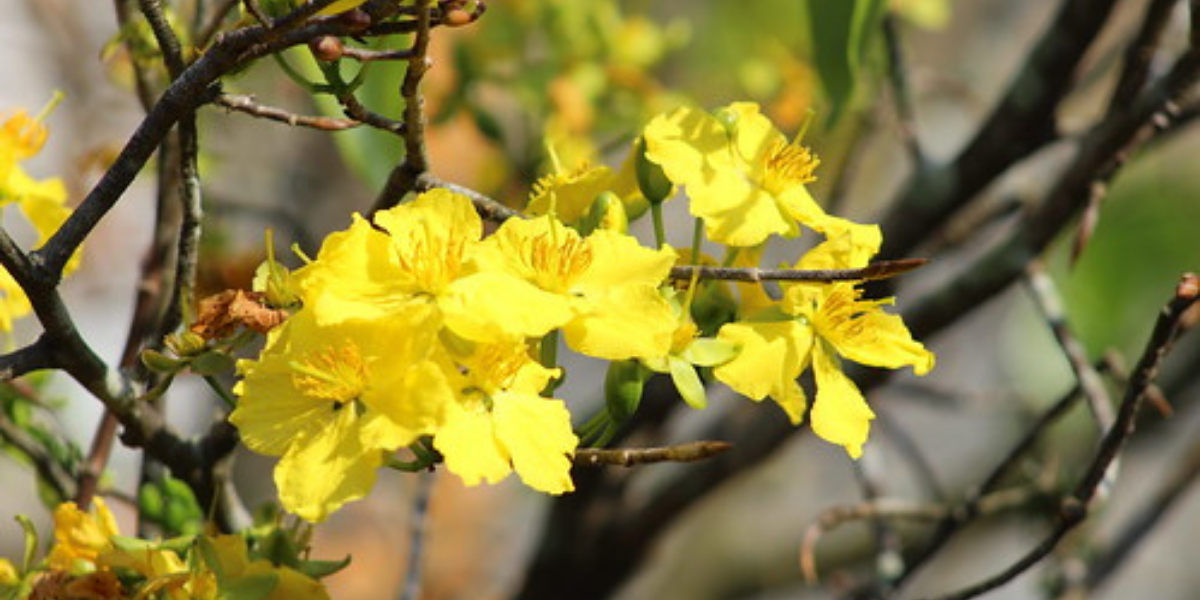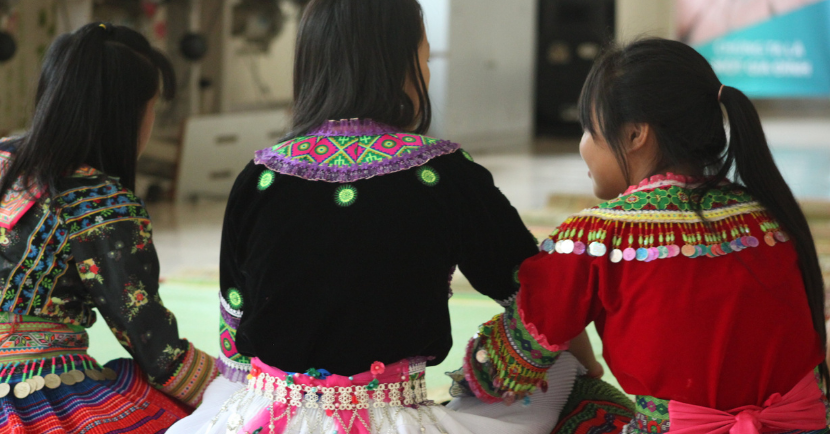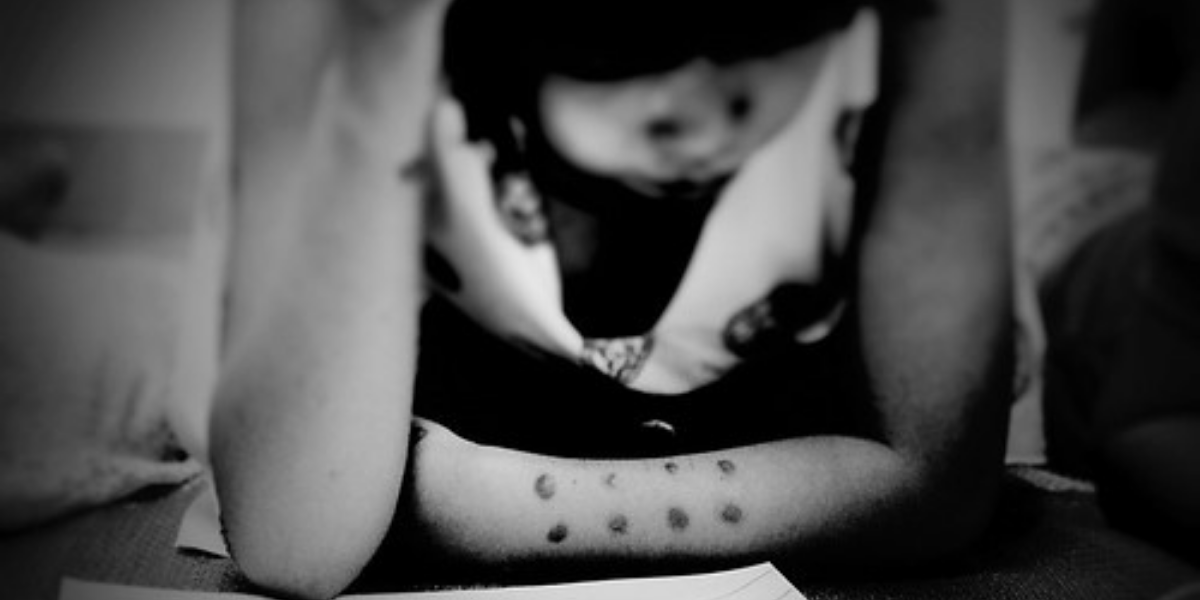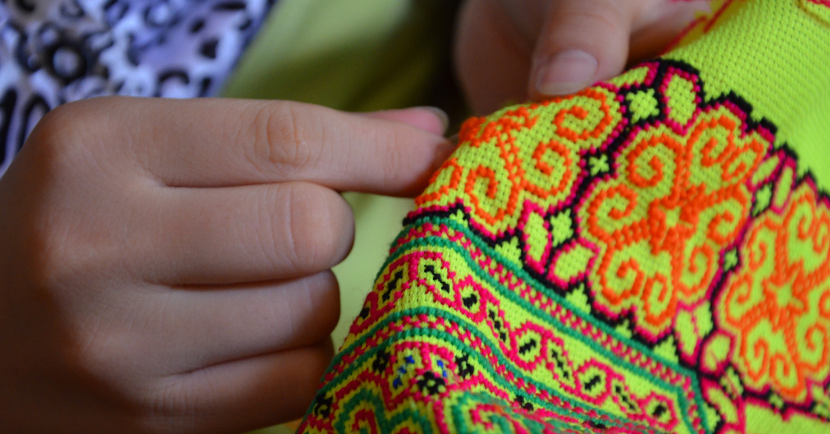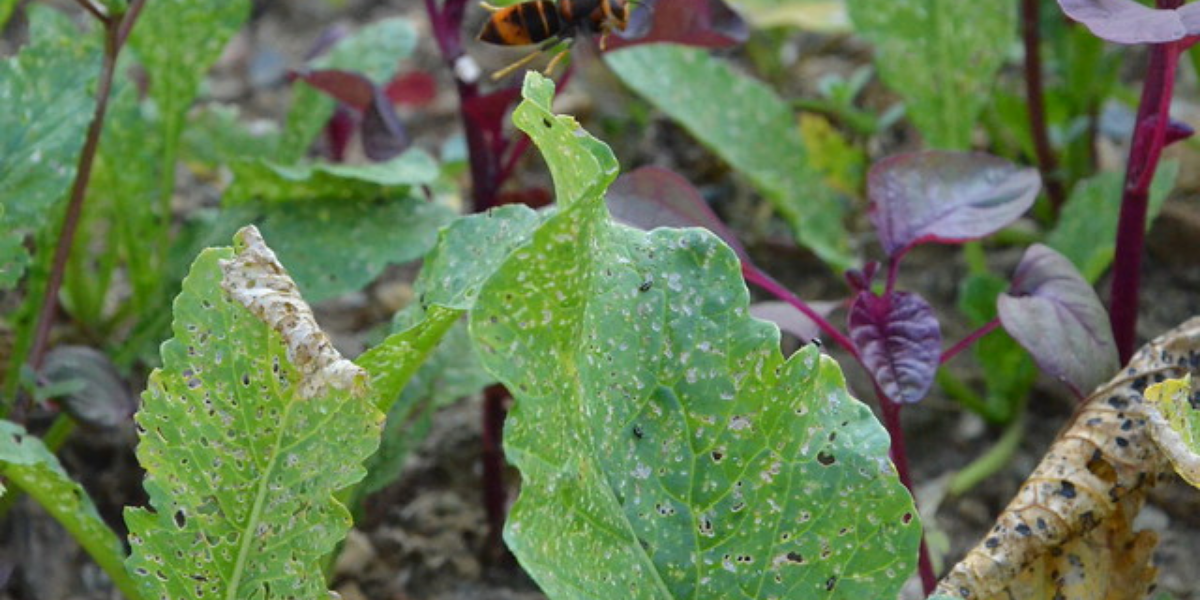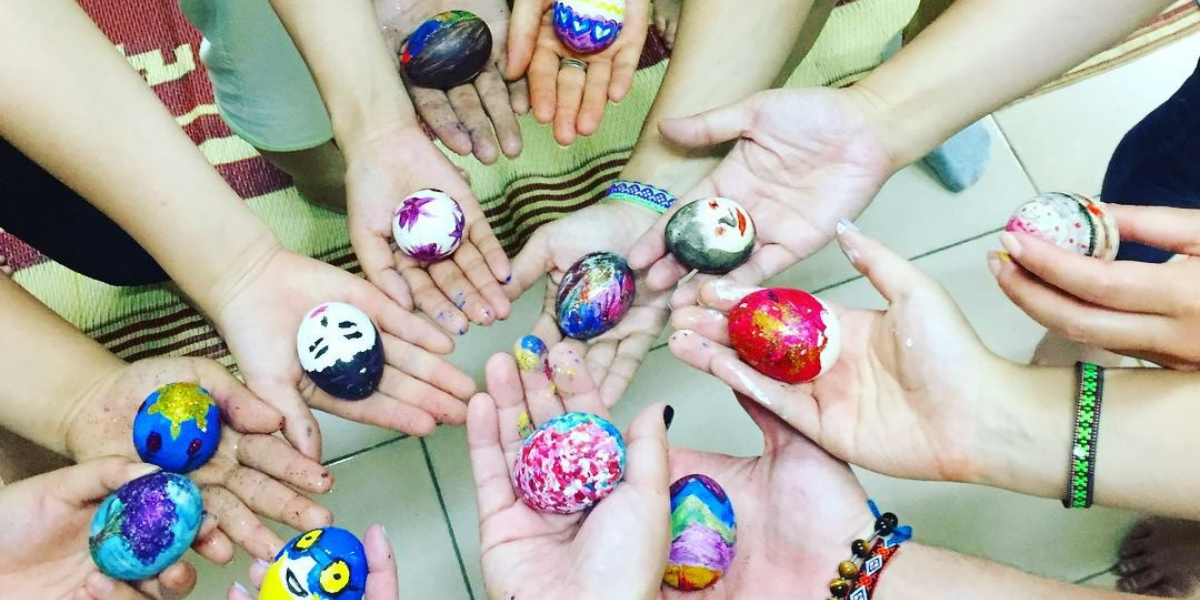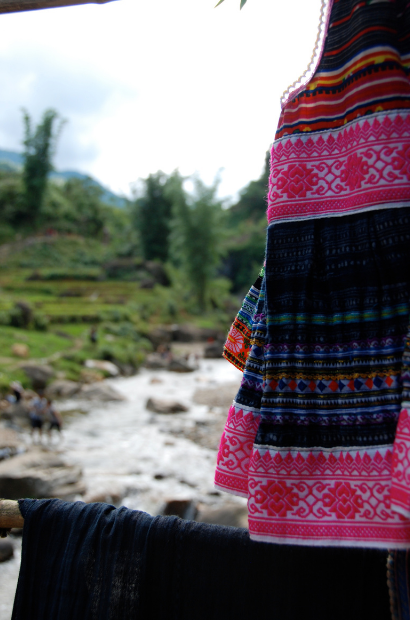D. is the newest and youngest human trafficking survivor taking up residence at our Lao Cai Compassion House. Despite not ever receiving formal education and being illiterate, D. is proving to be one of the most tenacious young women we have met. She understands the challenges ahead of her and she has expressed determination to obtain an education as well as vocational training so that she can better protect herself and her family against exploitation in the future. The most immediate care that D. needed was medical to help heal the infections on her legs. Once that was done, we have started to work with her on reading and writing skills.
Below is her story:
As the youngest child in my family, I have four older sisters and two older brothers. When I was fourteen, I was forced into a marriage. My husband at the time was twenty-year-old and even though he was also Hmong, we did not speak the same language since he is from a different Hmong tribe. He was extremely abusive. Four months later, my sister ended up marrying into the same family (she married his older cousin) and was also severely abused. Unlike me, she would scream and fight back whenever he was abusive towards her. It was inevitable that her abusive husband would one day kill her. Upon my sister’s death, my family found out the dire situation that I was in and rescued me from my abusive husband.
Shortly after I returned home, a stranger called me on the telephone to tell me of a promising work opportunity. I agreed and upon arrival in China, he immediately sold me to a Hmong couple who then sold me as a bride to a thirty-year-old Chinese man. I cried hysterically every single day until he eventually could not take it anymore and ended up selling me to someone else. In this new home, I paid careful attention to the man’s daily routine so that I could look for my window to escape. I pretended to love and care for this man so that I could gain his trust.
After about two weeks, he came home from work one day in a very good mood. Once he fell asleep and stopped responding to my inquiries, I snuck over to his coat and grabbed the keys and the little money that he had in his pockets. That day was only the second time in my life that I have ever seen an elevator (the first day was when I was first sold to him), and I was not sure how one worked. I frantically paced the floor, terrified that he would wake up and catch me, but I really did not know what to do. Suddenly, a different man approached the elevator and pressed a button. He motioned me to enter, so I did. I did not want to speak to him because I did not want to arise any suspicion since I did not know how to speak Chinese. Since I knew that we were on one of the higher floors, I motioned down with my finger. Luckily this worked and once I got to the ground floor, I ran with all of my might.
For the next ten days, I would only allow myself to eat a couple of banh bao and bottles of water because I was afraid I would run out of money. At night, I would hide in the bushes to try to sleep but it was hard to do because of all the noises and mosquitoes. After a few days, my entire body was covered in mosquito bites that swelled up. I was exhausted and sickly looking; I lost hope and was eventually driven to despair. All I could think about was my mother who was probably worried to death about me. I thought to myself, “If I cannot return home to my family, I would rather die than be sold again.”
So I tried to take my own life by jumping over a bridge and into a river. That was when two Chinese men who were wearing some type of uniform saved me. I could not understand what they were discussing but I could tell that the sight of me disgusted them: I smelled bad and was covered in swollen red welts. I could tell that they were worried that I might have been contagious with whatever it was that they thought I had because they immediately took me to a hospital to get a check-up. After the hospital cleared me, they did not know what to do with me so they locked me up in prison where I stayed for the next four months. They finally introduced me to someone who spoke Vietnamese and I was finally able to tell someone that I was from Vietnam and that I needed to go home.
I am just a young Hmong girl. I was never given the opportunity to attend school. Because I don’t know how to read and write, I always thought that I would not amount to anything. Now, I am given a second chance at life and I will do everything to prove I deserve it. Tell me, if you were in my situation, would you have done the same [try to escape]?
“I’m not sure. I would like to think that I have that much courage to escape those horrible conditions,” responded Ms. Phuong Thao, our program manager.
Phuong Thao Nguyen and Hang Tran
